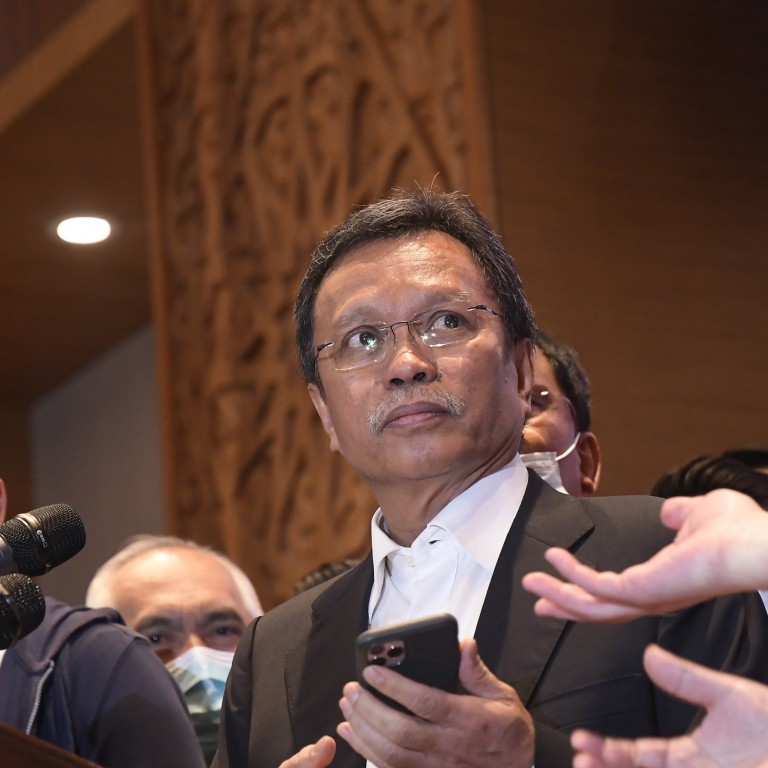
Is the Sabah state election a bellwether for Malaysian politics? PM Muhyiddin certainly thinks so
- The prime minister says he will call a general election if his Perikatan Nasional coalition and its allies win the September 26 vote
- But the opposition is banking on current chief minister Shafie Apdal and his unity-driven campaign, which has resonated with younger voters
“If we win in Sabah, we will hurry up and have the general election. I know what the media will write but let them speculate,” the premier was quoted as saying on Friday, as he and other government heavyweights descended on the state to aid the final leg of hustings.
“The signal must be given by Sabahans that ‘we support Perikatan Nasional, we want Muhyiddin to continue to be prime minister’,” he told supporters, according to Malaysiakini.
Malaysia’s Muhyiddin could see state election damaged by girl studying in treetop for better Wi-fi
A total of 447 candidates from 15 parties will contest 73 state assembly seats in Sabah, the vast state on the island of Borneo that is home to some of Malaysia’s most pristine beaches and jungles.
Shafie – who leads Parti Warisan Sabah (Warisan), which has governed since 2018 – has run on a strong message of unity, urging Sabahans to push back against party-hopping and racial rhetoric just weeks after the state government was dissolved following a slew of political defections.
With campaign materials including hoardings reminiscent of former US president Barack Obama’s “Hope” poster, and with slogans such as “In God we trust, unite we must”, the leader has gained traction among Sabah’s many younger voters.
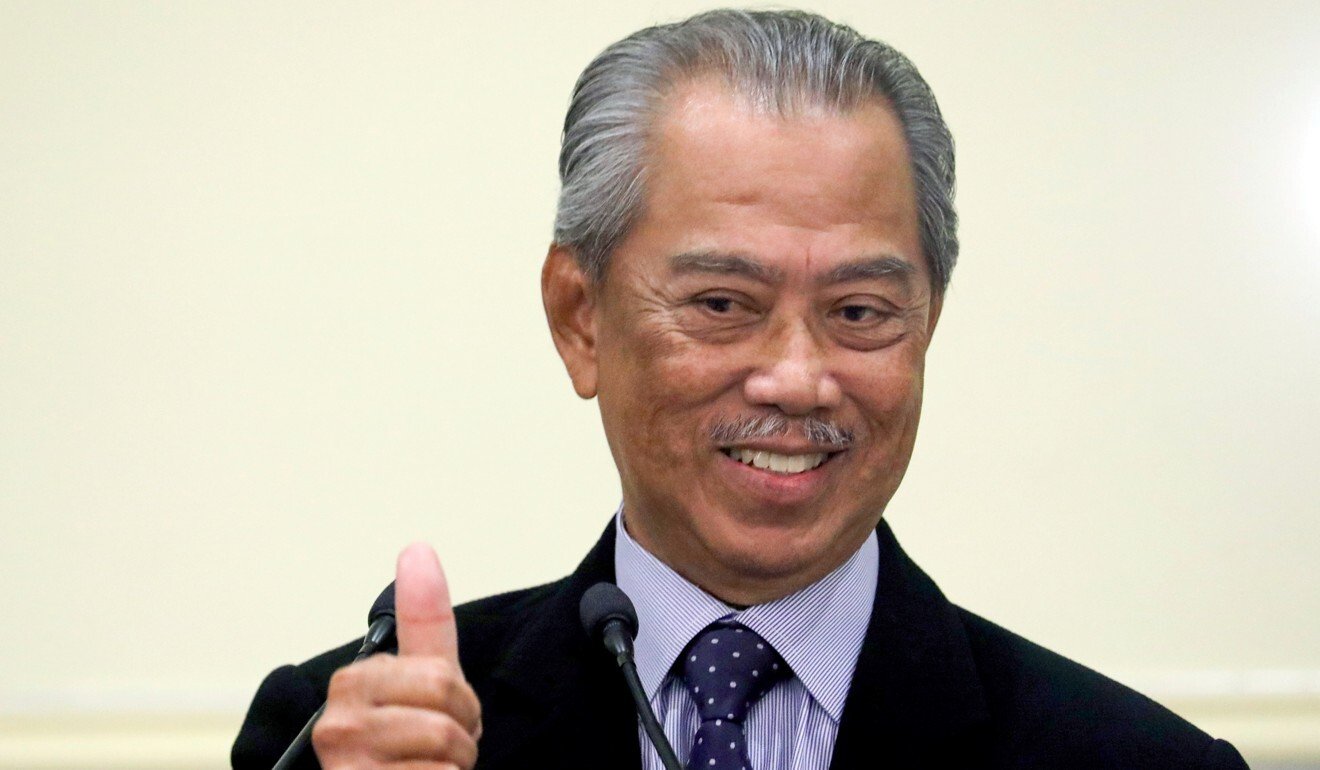
While Warisan and its allies, opposition coalition Pakatan Harapan, have put forth their support for Shafie as chief minister, candidates from Muhyiddin’s Perikatan Nasional coalition and its collaborators such as the United Malays National Organisation (Umno) have refused to choose their own names, instead waiting to see who will control the majority of seats.
The latter compact, backed by the federal government, has styled itself as the Gabungan Rakyat Sabah, or Sabah People’s Alliance.
According to Warisan candidate Jenifer Lasimbang, the party is less certain of its chances in multi-cornered fights in areas with many indigenous voters, compared with the state’s suburban and urban areas.
“In the interior we have some problems, mainly because they can’t see what’s online,” she said. “Leadership-wise, Shafie is strong, he’s got his message of unity taking a huge leap forward for us in Sabah – especially after years under Umno.”
Malaysia’s Sabah state urged to consider postal voting for election due to coronavirus
This messaging, observers say, has only served to underscore Shafie’s popularity in the resource-rich state that has long lagged behind Peninsular Malaysia in infrastructure and development, while also espousing largely more progressive values – a contrast to the peninsula’s politicisation of race and religion.
“[Shafie’s] experience as chief minister and previously a federal minister is an asset,” said Azmil Tayeb, a political scientist and academic. “He knows how to tap into the anti-peninsula sentiment, namely when it comes to religious freedom. The opposition meanwhile is too fragmented, with Umno and Perikatan Nasional not seeing eye to eye on a potential candidate.”
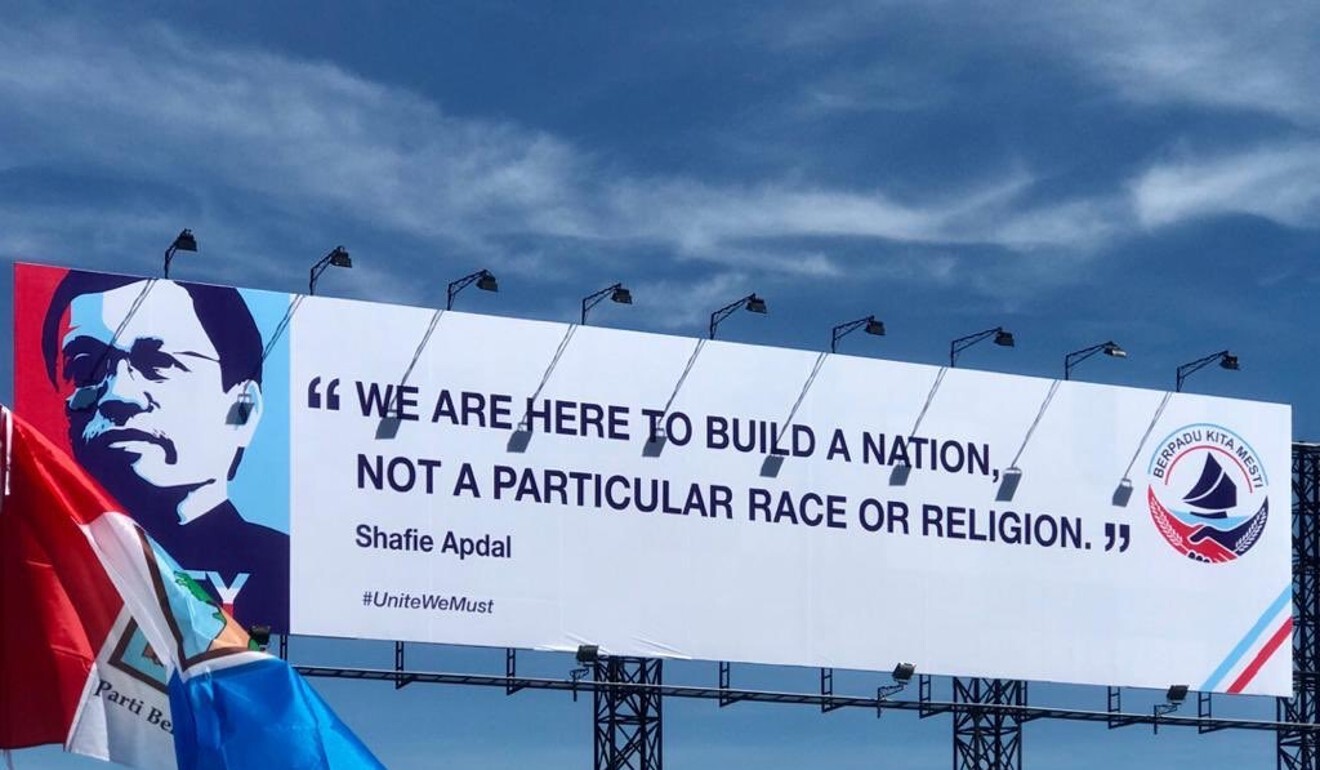
The snap elections were triggered after several Warisan politicians defected to other parties, leading to a possibility the state could fall into the hands of the ruling Perikatan Nasional coalition, which holds a slim majority in parliament.
Perikatan Nasional took over in March after a political coup that saw Pakatan Harapan, which came to power in the 2018 federal elections, turfed out. Former Pakatan Harapan member Muhyiddin took on the mantle of prime minister, replacing Mahathir Mohamad.
While Perikatan Nasional holds federal power, Pakatan Harapan has maintained a hold on three of Malaysia’s 13 states, with Sabah up for grabs.
Philippines pursuing Sabah claim against Malaysia as ‘we have not forgotten’, says Locsin
Azmil notes that if Shafie and his party win the state elections, he has “a tight balancing act to do at the federal level”, toeing the line between not kowtowing to the federal government and cooperating with it as state development is partly dependent on federal coffers.
“State antagonism towards the federal government means that funding for Sabah can be stopped or diverted elsewhere,” he said.
While some top federal leaders have recommended names for the role – such as Hajiji Mohd Noor, who belongs to Muhyiddin’s nationalist Parti Pribumi Bersatu Malaysia – a consensus has yet to be reached.
Other names believed to have been put forth include the controversial Bung Moktar Radin from Umno and Jeffrey Gapari Kitingan, a politician believed to have been key in aiding former Sabah chief minister Musa Aman in rallying the defectors – which eventually led to Shafie dissolving the legislature, triggering the snap polls.
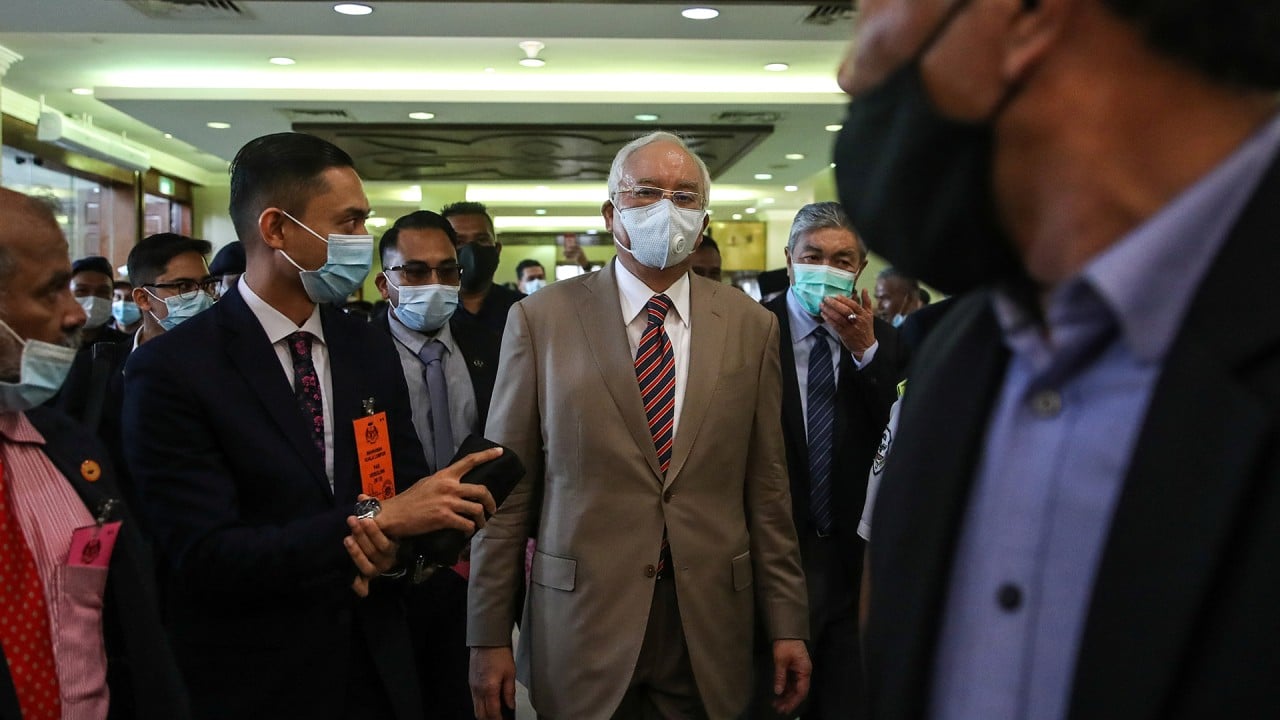
01:43
Malaysia’s former PM sentenced to 12 years in jail and fined US$49 million
Musa – Sabah’s chief minister from 2003 to 2018 – made the move soon after prosecutors dropped corruption charges that were levelled against him in 2018 following his election defeat.
In a side plot, he sought to reverse the dissolution of the state assembly through a judicial challenge, claiming fresh polls were unnecessary, given that he had a majority following the defections, but his argument was rejected by the High Court in the state capital of Kota Kinabalu.
Later, Musa was expected to be Shafie’s strongest challenger in the polls, but in the lead-up to nomination day Umno signalled that Bung Moktar was its presumptive chief minister candidate by announcing that he would lead the election campaign.
Bung Moktar is seen by commentators as being close to disgraced former premier Najib Razak, who was recently convicted of multiple counts of graft and corruption linked to the 1MDB corruption scandal but remains a potent force within Umno.
On Malaysia’s National Day, Sabah and Sarawak question place in nation
Musa then decided not to contest in the election, but has been seen attending campaign events by the Gabungan Rakyat Sabah camp.
“Shafie is the strongest candidate. The people like that his campaign is positive, speaks for Sabah unity and doesn’t play on Islamic credentials. The non-Muslim population appreciate this,” said James Chin of the University of Tasmania’s Asia Institute, adding that Shafie had managed to “overcome” his Umno roots after having previously served in the party alongside Muhyiddin and under Najib.
After being disciplined for criticising Najib’s leadership, Shafie left the party and Muhyiddin was sacked. They then allied with the then opposition Pakatan Harapan to overthrow the Umno-led Barisan Nasional coalition in the 2018 elections, after it had enjoyed over 60 years of uninterrupted rule.
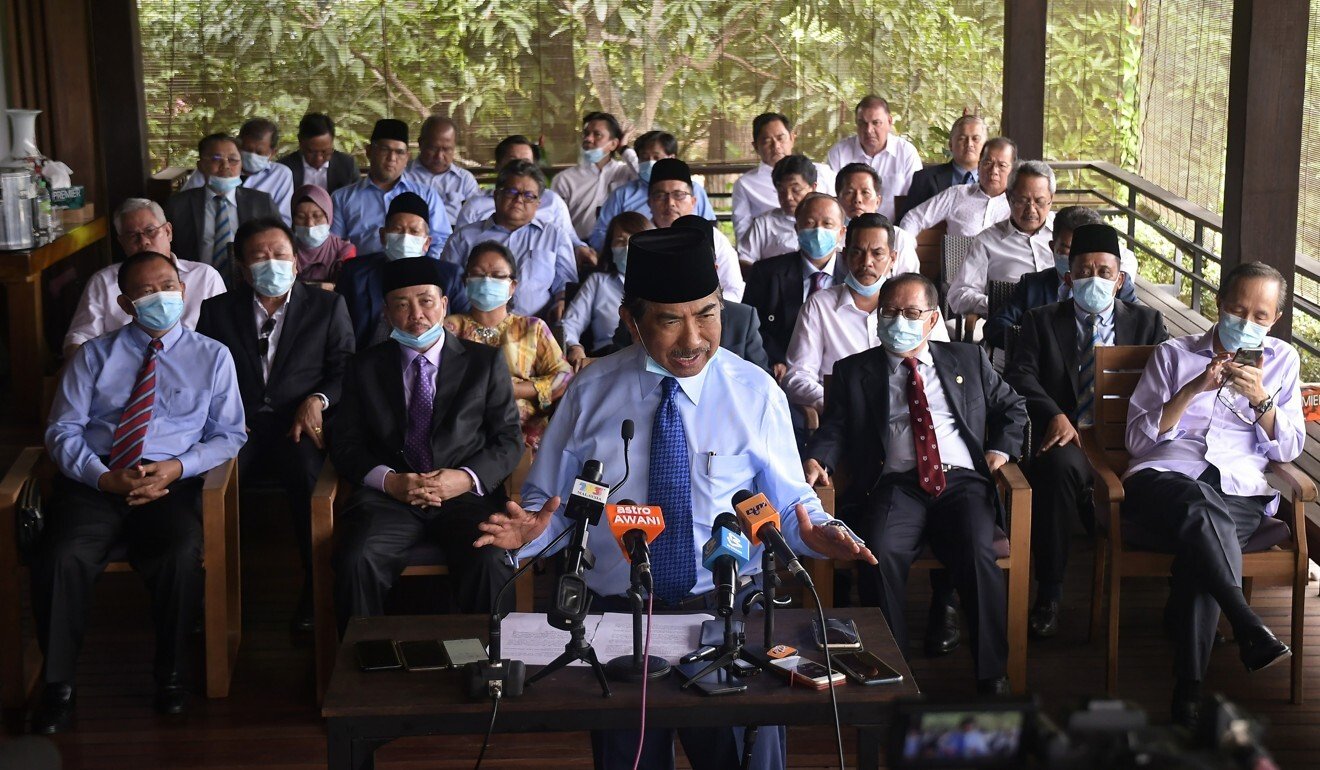
“There seems to be a collective amnesia over the fact that Shafie was in Umno previously,” said Chin, adding that his departure had “wiped the slate clean”.
However, a Pakatan Harapan source warns that the Muhyiddin administration’s attempts to win over the state “cannot be underestimated”.
“Although Perikatan Nasional appears lacklustre and fractured, some voters are upset with Pakatan Harapan for decisions made during their tenure,” the source said.
Measures to curb the spread of Covid-19 in Sabah – which has some 945 reported cases, and has seen an upswing in infection numbers with four new clusters detected recently – have also made campaigning more difficult, noted Pakatan Harapan member and former deputy minister Hannah Yeoh.
“It’s tough to do big rallies, but Warisan campaigners are hard working. In the past, people criticised Pakatan Harapan for not being united, but now we have a united campaign,” she said.
But despite the social media buzz surrounding Shafie and Warisan, some commentators have cautioned against the election being viewed as a binary race between the 62-year-old’s camp and his challengers.
“It is easy to simplify, as this fits the ‘with us’ versus ‘against us’ framing of national politics. In Sabah, however, even with the state’s own political polarisation, the complexity and diversity do matter,” wrote veteran Malaysian politics observer Bridget Welsh in a September 14 commentary. “Many fail to appreciate that many of the players are closely tied together, often tied to many different parties, not just in the recent [party-hopping] episodes.” ■

